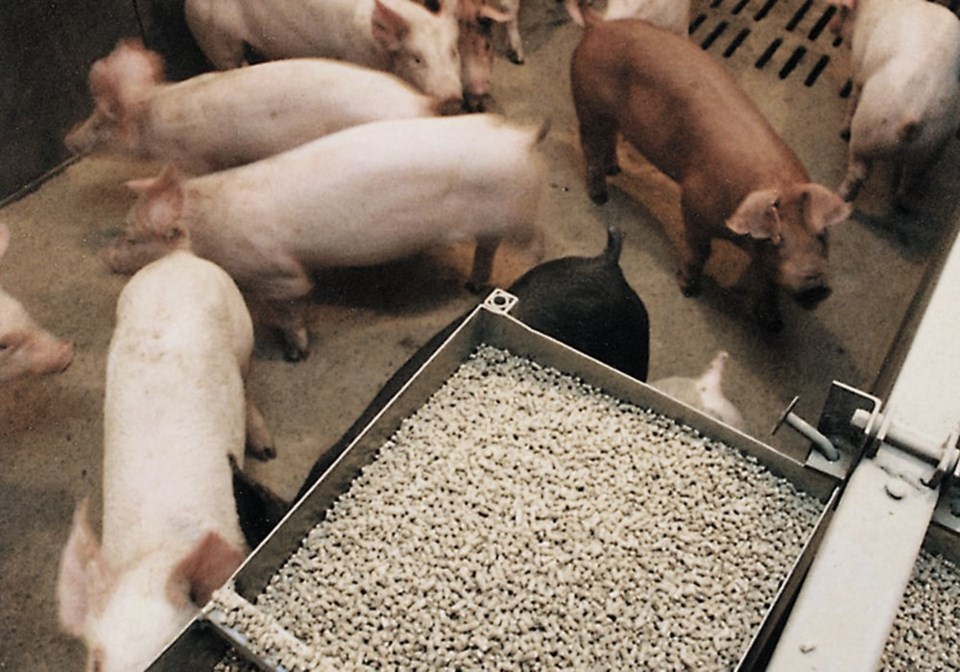WESTERN PRODUCER — What could go wrong for Canada’s hog farmers?
How about:
- African swine fever
- foot-and-mouth disease
- regulated country-of-origin labelling in the United States
- Seneca Valley Virus
- anti-livestock legislation
- non-tariff trade barriers
- heavy carbon taxes
- bans on various medicines and antibiotics
- a failure to develop adequate safety net programs
- an inability to find workers, truckers and veterinarians
That by no means constitutes a full list of the risks Canada’s hog farmers accept as a part of doing business.
Any of these issues could hit the industry and cause devastating financial losses. To be a hog producer, you’ve got to handle a lot of risk.
All farmers face risks, but none face the same type of extreme risks that hog farmers face.
For crop farmers, there are the yearly threats of droughts, floods and other weather problems. Cattle producers famously faced the loss of much of their export market when BSE appeared.
When it comes to market risks, the severity comes from a combination of the severity of the market access losses that occur overnight, the extreme dependence on foreign markets and a production system that can’t continue to operate for a few months while things sort themselves out.
Canada’s hog production is about 70 percent exported, with Manitoba hog farmers relying upon outside markets for 90 percent of the hogs and pork they produce.
That provides constant work for Canada’s hog industry and its organizations in preparing for many potential disaster scenarios. The hog industry is the furthest thing we have in Canadian agriculture from a sector that relies upon post hoc responses and ad hoc bailouts. Hog farmers, leaders, veterinarians, government officials and others spend hours, months, years getting ready for likely future disasters, such as ASF.
Will they do a perfect job of getting prepped for whatever comes?
Of course not. But just being in a stance that’s ready to react to a wreck is a huge step toward mitigation and successful management.
We all should be thankful that the hog folks are so prepared, even if we have nothing directly to do with hog production. Hog barns consume millions of tonnes of grain, support vibrant trucking and other service industries and provide tens of thousands of jobs. As an export-oriented industry, it isn’t just transferring money from one Canadian to another, but pulling in billions of dollars of revenue from outside to pay for the things we want.
It’s something about which the industry has to remind governments because they rarely realize what an economic powerhouse it is. At the Portage la Prairie Manitoba Pork regional meeting Nov. 9, the organization highlighted the 22,000 jobs the industry provides just in Manitoba, the two million tonnes of grain it consumes, the more than $200 million in provincial and municipal taxes it pays, and the fact that it provides 55 percent of the province’s agriculture and food manufacturing.
The industry says it provides $2.3 billion to the provincial economy, which is equivalent to the cost of building 72 new schools, building 11 highway interchanges or expanding 16 hospital emergency rooms.
Still, governments tend to take for granted the contributions that out-of-sight rural industries make, so the reminding must be constantly undertaken.
Producers need governments to push back against the protectionism rising around the world, to support the industry when it faces unfair attacks and ensure its regulations don’t blindside producers.
Industry organizations are involved in this work, but farmers and rural communities need to be playing their part. There’s a lot of risk in hog and other forms of agricultural production. Farmers need to know they can rely upon governments having their backs, and that will only happen if governments know that they also need to be prepared to act.


SASKTODAY.ca is Saskatchewan's home page. Bookmark us at this link.